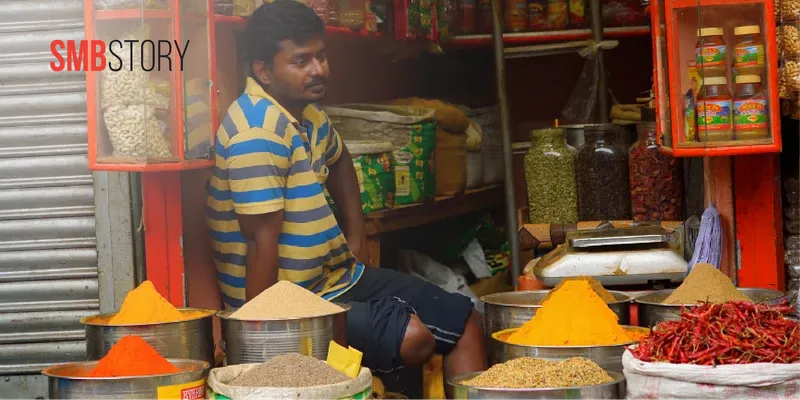Why MSMEs and other small businesses require robust institutional support
Since MSMEs and other small businesses constitute the backbone of the Indian economy, their revival will help drive a faster economic turnaround
At the end of June, the Finance Minister unveiled a relief package for multiple sectors battered by the second wave of the pandemic. Among others, it included a liquidity component for small businesses to help revive broken supply chains. Also, an emergency credit line guarantee scheme’s scope providing relief to myriad businesses has been expanded to Rs 4.5 trillion from Rs 3 trillion last year.
Besides, 2.5 million small borrowers will be extended loans through a new credit guarantee scheme via micro-financiers. Through this, bank loans to micro-lenders will be backed by the National Credit Guarantee Trustee Company for onward lending of up to Rs 1.25 lakh per borrower.
Support shortfalls
Additionally, extra time till March 2022 has been granted for businesses to opt for financial assistance towards the PF (provident fund) contribution of workers hired during the pandemic. An extension was necessary as the Aatmanirbhar Bharat Rozgar Yojana — funding full or partial PF contributions of people hired under the scheme, according to the employer’s size — was slated to expire this June. On signing up, the government funds the PF of these workers for two years.
In July 2020 too, the Centre had announced government-guaranteed loans of $40 billion to support an array of small businesses get back on track. However, even then, most small entrepreneurs rued their businesses were so badly bruised it made no sense to accept more debt. Instead, they felt it would have been helpful if the centre had reduced GST or even waived off the interest on their loans.
Moreover, others mentioned that, notwithstanding the government’s pledge to open up credit facilities, bankers were unwilling to lend since their businesses were floundering.
After lockdown restrictions were eased in September 2020, small businesses that managed to survive the first wave were slowly getting back on their feet. But the sheer ferocity of the pandemic’s second wave has completely thrown them off their feet once again.
A survey by LocalCircles across 171 districts in India indicated that 59 percent of startups and MSMEs are poised to downsize, shut shop, or sell their business by the end of 2021 due to the second wave.
This was because extended regional lockdowns had impacted most of these companies’ working capital since sales crashed.
As per the survey, only 22 percent of MSMEs and startups have a runway of more than three months while 41 percent were out of funds or had less than one month’s funds left. Furthermore, by July, 49 percent intend to reduce employee benefits and compensation costs. The survey includes 11,000 responses from more than 6,000 startups and MSMEs.
The above responses make it apparent that India’s startups and MSMEs are struggling for survival ever since the first lockdown in March 2020. From September 2020 after restrictions were eased to April 2020 when lockdowns were re-imposed selectively across states, small businesses had barely begun stabilizing operations when the double whammy unfolded via the second wave.
Meanwhile, liquidity remains a major challenge and, as highlighted earlier, the measures for new loans don’t work since lenders remain wary of extending credit to pandemic-hit small businesses.

Some practical solutions
In such a scenario, a possible solution is to use CSR funds in supporting small businesses and startups running operations with a social impact. These include community engagement, health equipment support, and emergency assistance ventures.
If readers are wondering why MSMEs should be handheld, consider some significant statistics vis-à-vis their role as the nation’s silent growth engine. The segment contributes to 29 percent of India’s GDP and 48 percent of exports while employing more than 110 million people via 63 million enterprises. Also, strong upstream and downstream linkages offer employment and entrepreneurial opportunities to millions more across its value chain.
Recognising this, the RBI had recently announced that NBFCs (non-banking finance companies) could avail of bank funding under TLTRO (Targeted Long-term Repo Operations) for promoting incremental lending, whereby they could offer credit lifelines to financially-stressed MSMEs.
Despite multiple measures, MSMEs continue confronting challenges such as complex licensing and regulatory mechanisms, varied compliance requirements, stringent eligibility norms for loans, lack of wherewithal for digital adoption and a complicated tax system, including GST.
For example, MSMEs cannot capitalise on loan offers due to cumbersome documentation, lack of adequate collateral, particularly for first-time borrowers, and non-existent credit history. Consequently, for most MSMEs, the loan schemes stay on paper.
Therefore, robust and well-thought-out policy measures are needed to support small businesses in procuring loans and running operations viably. These can include reduction in GST, easing stringent eligibility, compliance and licensing criteria, incentivising the adoption of digital, and addressing the skilling challenge.
Globally, even UNCTAD believes MSMEs must be offered short-term support measures to reduce their tax burden together with long-term structural policies, including digital and financial inclusion as well as entrepreneurial skills capacity development. Worldwide, MSMEs account for two-thirds of employment, with percentages as high as 80-90 percent in low-income nations.
However, their smaller size makes them more flexible and adaptable to a new normal such as the one fostered because of COVID-19. Given that MSMEs form the backbone of the national economy too, it is in the nation’s interest to support their sustained revival for driving greater employment generation and ensuring a faster revival of India’s economy.
YourStory’s flagship startup-tech and leadership conference will return virtually for its 13th edition on October 25-30, 2021. Sign up for updates on TechSparks or to express your interest in partnerships and speaker opportunities here.
For more on TechSparks 2021, click here.
Applications are now open for Tech30 2021, a list of 30 most promising tech startups from India. Apply or nominate an early-stage startup to become a Tech30 2021 startup here.
Edited by Saheli Sen Gupta
(Disclaimer: The views and opinions expressed in this article are those of the author and do not necessarily reflect the views of YourStory.)








